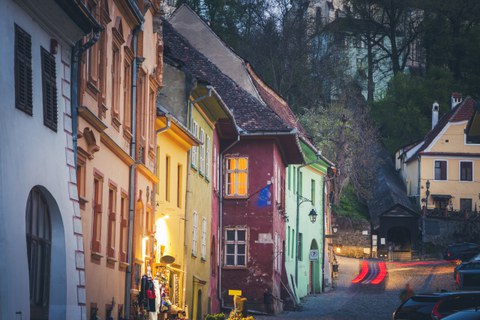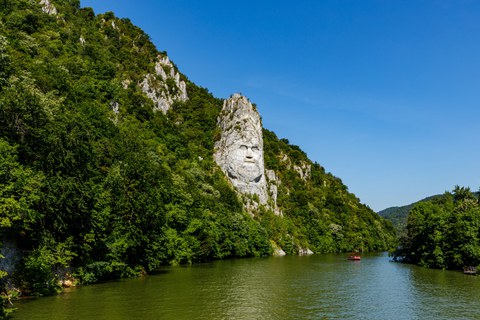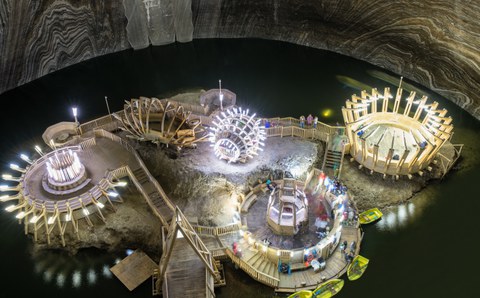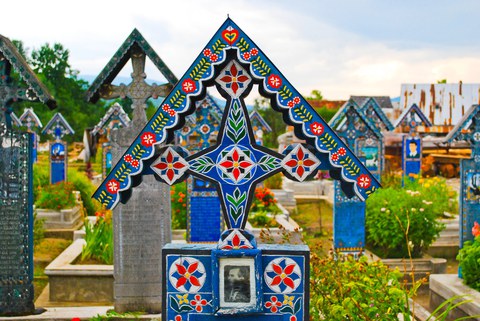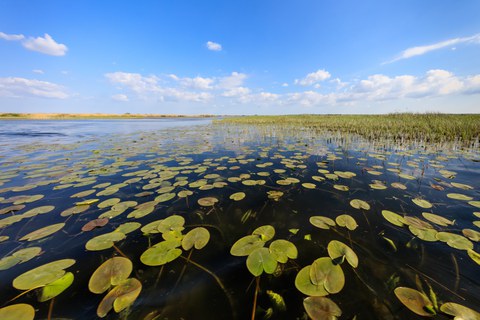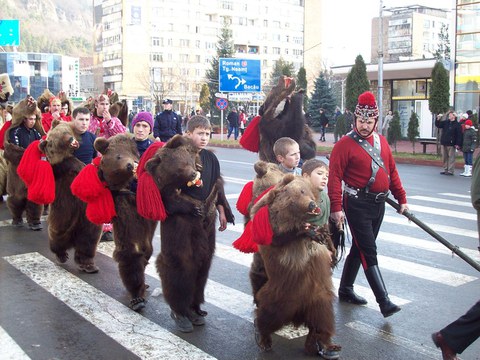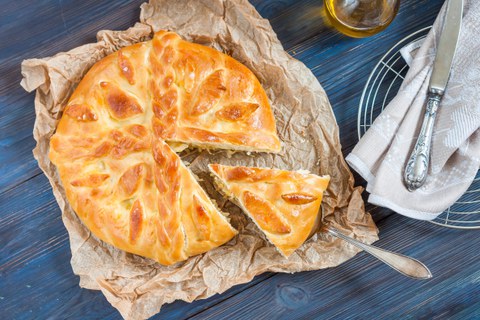Partner Country of the Month November 2021: Romania
That's where Dracula comes from, but apart from that, no clue? Romania is still an unknown spot on the map for many, but this is quite undeserved. This country near the Black Sea has much to offer. There are castles and medieval old towns, the wild mountain ranges of the Carpathians and a culture full of surprises. The name Romania is derived from "Roman" and shows to the country's long history. We have the Romanians to thank for the invention of the filler and the first free flight of a flying machine with a traction propeller in 1906. Are you curious to know more?
With the "Partner Country of the Month" campaign, we want to shine a spotlight on the wide diversity of countries, regions and partner universities of TU Dresden that our students can explore during a semester abroad.
Table of contents
General facts and figures about Romania
Capital: Bucharest
Population: 19.4 million
Official languages: Romanian
National holiday: 1. December (Unification of Romania)
Currency: Leu (L / RON)
You can find further facts, figures and information on Wikipedia, on romaniatourism or wikivoyage.
Language matters
- Hello - Salut
- How are you? - Cum merge treaba?
- I'm fine - Sunt bine
- My name is ... - Mă cheamă …
- I don't understand - Nu înţeleg
- Thank you - Mersi
- Bye - Pa
Romanian is the only Romance language of Eastern Europe, sharing a common origin with languages such as Italian, Spanish and French. Of these, it's most similar to Italian, 77% of their vocabularies are related. Therefore, those who already know a Romance language have an advantage in learning Romanian.
Our Romanian partner universities mostly offer courses in English and Romanian, but sometimes also in German, French or Russian. This varies from partner university to partner university. Therefore, please check the exact requirements before applying.
Most younger Romanians speak English well, but you cannot expect knowledge of English everywhere. In any case, some basic knowledge of Romanian will be helpful. In Dresden, you can study Romanian at the VHS.
Did you know that ....?
-
Dracula's castle served as an unusual Covid vaccination center this year? When visiting the castle, you could get vaccinated without an appointment. As your reward, you got free admission to the exhibition of torture instruments, and a vaccination certificate appropriately illustrated with a vampire nurse.
-
Romania and Chad have almost the same flag? There is only one small difference. The shade of blue for Romania's flag is slightly lighter.
-
no other country in Europe has more virgin forest than Romania? Two thirds of Europe's remaining primeval forest areas are located in the Romanian Carpathians. This is also reflected in an impressive wildlife with brown bears, wolves and lynxes living in the forests. Romania's bear population is the second largest in Europe, only trumped by Russia. Unfortunately, the primeval forests are not adequately protected and are therefore threatened by deforestation.
-
Romania has particularly fast broadband Internet? Only in Monaco, Singapore and Hong Kong have higher average download speeds. Germany cannot keep up here and is only in 35th place internationally.
-
the average net monthly salary in Romania is around L7,254 (€1466)? A typical salary is lower, at about 4,014 L per month (811 €).
-
the largest rock sculpture in Europe is located in Romania? It carved into a rock flank at the Iron Gate, where the Danube runs through a mountain range. It depicts Decebalus, a king of Dacia (on the present territory of Romania), who defended the kingdom against invasions by the Romans. Eventually, Dacia was conquered after all and became a Roman province - and later on, the inspiration for the name of the Romanian car brand.
Cooperation with TU Dresden
You can find all cooperations of TU Dresden in our database. Have a look at the experiences of our previous exchange students at Questionnaires. Professors at your faculty may have direct contacts to your partner university of choice and can advise you.
Our cooperations with Romanian universities are part of Erasmus+. You can find the contact persons and application deadlines for your faculty here.
Our Romanian partner universities via Erasmus+
Universities in Bucharest
- Academia de Studii Economice din Bucuresti
- Business Administration and Economics
- Universitatea 'Politehnica' din Bucuresti (UPB)
- Materials Science
- Electrical Engineering and Information Technology
- Textile Machinery and High Performance Material Technology
- Universitatea 'Titu Maiorescu'
- Medicine
Universities in other Romanian cities
- Universitatea 'Transilvania' din Brașov
- Forest Sciences
- Medicine
- Universitatea 'Babes-Bolyai' din Cluj-Napoca
- German Language and Literature
- Mathematics
- Universitatea 'Alexandru Ioan Cuza' in Iaşi
- German Language and Literature
- Universitatea Tehnica 'Gheorghe Asachi' din Iaşi
- Textile Machinery and High Performance Material Technology
- Universitatea 'Lucian Blaga' din Sibiu
- History
- Universitatea de Vest din Timișoara
- Sociology
- German as a Foreign Language
- Universitatea 'Politehnica' din Timișoara
- Materials Science
Don't miss...
Salina Turda is one of the oldest salt mines in the world. Salt was mined here since antiquity. Today, the mine is home to a theme park that could pass as a sci-fi setting. Among other things, you can ride a Ferris wheel, play sports and go rowing on an underground lake. An insider tip for nature lovers: Not far from the mine is Turda Gorge, an impressive limestone gorge with a small river flowing through it.
Cimitrul Vesel. The Merry Cemetery in the village of Săpânța commemorates the dead in a special way. There are humorous obituaries on about 800 brightly painted crosses, such as "Here I rest, and as long as I lived, I liked to drink wine and brandy". In the village community people know each other anyway - embellishments are not necessary.
the Danube Delta. The second largest river delta in Europe is a protected area inhabited by pelicans and other water birds. You can discover landscapes such as riparian forests or floating islands by paddle boat. The rest of the Black Sea coast is also well worth a visit, with unspoiled beaches, wild dune landscapes and lively seaside resorts.
Jocul Ursului (Bear Dance). In the Bukovina region, there is an unusual New Year's custom. Dressed in deceptively real-looking bear costumes (once real bear skins), and accompanied by drums and singins, people dance in a bear parade. The tradition has ancient roots going back to bear worship.
Let's get cooking...
Romanian cuisine is often described as both familiar and novel at the same time. This is because of the many influences that merge here, from Eastern and Central Europe, Turkey, the Balkans and Hungary. Sheep's cheese, onions and Mămăligă (a type of polenta) are typical ingredients, and garlic is a must-have in almost every dish in the land of vampires. The results, like the national dish Sarmale, are very tasty.
As in other parts of Southeastern Europe, a lot of meat is part of the cuisine. Nevertheless, vegans and vegetarians are lucky in Romania. Many Romanian Orthodox Christians (the largest religious denomination) observe a vegan fast during the six weeks before Easter and every Wednesday and Friday. Therefore, you can get mâncare de post (Lenten food) all year round.
Plăcintă cu varza - dumplings with cabbage filling
Plăcinte are a popular snack and are sold a lot as street food. You can get them savory or sweet in many different variations. Typical fillings besides cabbage include apples, soft cheeses or potatoes. The dish has a very long tradition, its origin can be traced back to ancient Rome.
Ingredients:
For the dough:
- 250 g flour
- ½ tsp salt
- 1 tsp dry yeast
- ½ tsp sugar
- 125 ml tepid water
For the filling:
- 250 g white cabbage
- a small bunch of dill
- salt and pepper
- oil for frying
For serving:
- 1 cup sour cream
- 1 tomato
- about ¼ onion
- some feta cheese (to taste)
Preparation:
Step 1: In a large bowl, mix together the flour, yeast, sugar and salt. Slowly add the tepid water a little at a time and stirring until all the flour is mixed in.
Step 2: Lightly dust your hands with flour. Then knead the dough for about 10 minutes, or until it no longer sticks to the sides of the bowl. Then cover the bowl with a kitchen towel and let the dough rise in a warm place, either for about 1 hour or until it has doubled in size.
Step 3: Finely chop the white cabbage or shred it in a food processor. Add salt and pepper and let it sit for 15 minutes. Chop the dill and set aside.
Step 4: Heat some oil in a pan, put in the cabbage and let it stew on medium heat until it becomes soft. Season generously with salt and pepper and stir in the dill towards the end. Allow it to cool down a little.
Step 5: Knead the dough briefly and then divide it into 5 smaller balls. Lightly flour a surface and roll out each ball thinly. Place a little bit of filling in the center of each piece of dough and then fold in the sides like in the picture. Then press down on the dumpling to flatten it.
Step 6: Chop the tomato and onion and place in a small bowl with some crumbled feta cheese. Add a little oil, salt and pepper and mix.
Step 7: Heat some oil in a pan and fry the dumplings one by one for 2-3 minutes on each side. When they are done, enjoy the plăcinte with tomato salad and sour cream!
(Many thanks to whereismyspoon.co)
Contact
Have you had a great time in Romania? Successfully completed a semester abroad in Bucharest, admired the Peleş Castle and enjoyed the plum brandy Țuică? Do you have tips for places and experiences that are not to be missed? We would be happy to share your experiences here, on social media or, if you want, in information events for other TUD students. Get in touch with us:
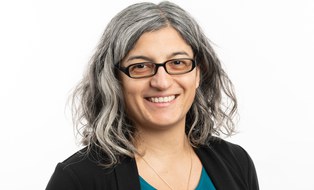 © Sven Ellger/TUD
© Sven Ellger/TUD
Advice on studying abroad
NameMs Federica Serra
Infocenter/ Study abroad; TUDworldwide: America
Send encrypted email via the SecureMail portal (for TUD external users only).
Visiting address:
Fritz Foerster Bau, Office 161 Mommsenstraße 6
01069 Dresden
Postal address:
TUD Dresden University of Technology International Office
01062 Dresden
Office hours:
- Tuesday:
- 09:30 - 11:30
- 12:30 - 14:30
- Thursday:
- 09:30 - 11:30
Please register at the SCS (FOE, floor 0). ** No office hours between 12 and 20 February 2026 **
Looking for first-hand information?
Would you like to know more about Romania? Ask our alumni ambassadors - TUD alumni who are active in many countries around the world and can give you information and advice for your stay abroad.
Getting in touch is very easy: On this interactive world map, markers indicate the cities where our alumni ambassadors live. There is a short profile with contact information for each ambassador.
Partner Countries Archive
Have you missed a partner country? Don't worry! Here you can read up on all articles.
|
Europe (Erasmus+) |
|
|
Africa |
|
|
America |
|
|
Asia |
|
|
Australia and Oceania |
|

